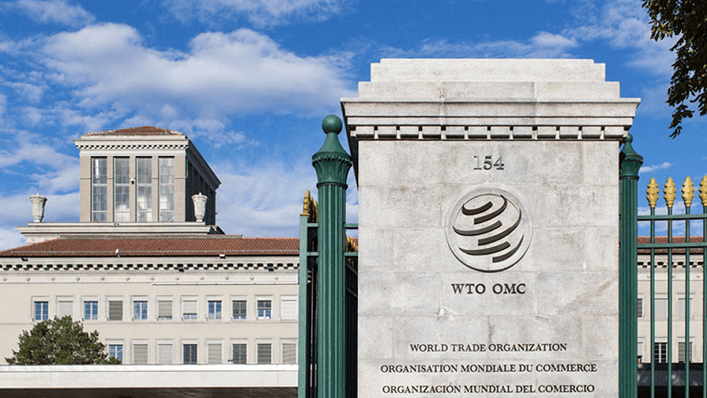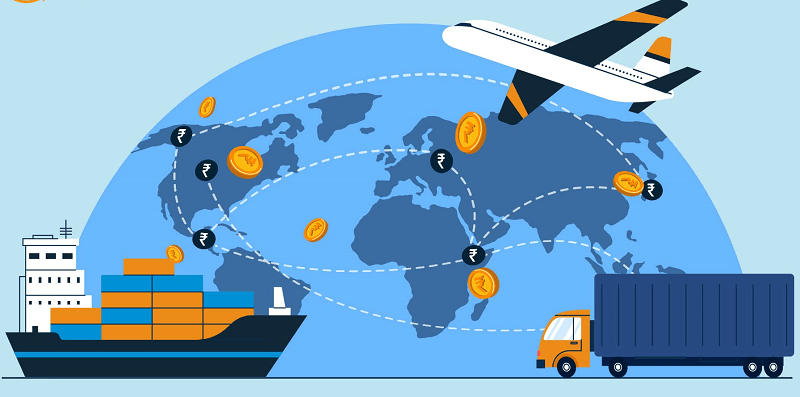Advantages and Disadvantages of WTOThe World Trade Organization (WTO) is the only intercontinental international organization that regulates trade between nations. Its core goal is to ensure a smooth, free, predictable, and uninterrupted trade flow. It was established in 1995, with its headquarters in Geneva, Switzerland. It has 164 member countries as of 2022. The WTO was created to promote free trade by organizing trade negotiations and acting as an independent arbiter in the settlement of trade disputes. The WTO has helped to promote greater free trade. Its core principles are as follows- 
The pros and cons of the World Trade OrganizationGATT (General Agreement on Tariffs and Trade), whose purpose was to encourage free trade across the globe, was superseded and renamed the World Trade Organization on 1 January 1995. This organization brings together governments from different countries to negotiate trade agreements and settle disputes. A number of member countries and a legal system work together to implement and defend the rules and protocols that make up the World Trade Organization. It is against the law to discriminate between trade cohorts within the WTO. However, exceptions can be made if it is necessary for national security or ecological fortification and other important goals. The World Trade Organization is made up of sovereign judges, who are responsible for resolving any trade disputes through a process called dispute settlement. The World Trade Organization's headquarters is located in Geneva, Switzerland. This organization has a huge impact on trade around the world. There are very few details that show the disadvantages. There are many concerns about the WTO's impact on developing and developed countries. We will be discussing some of these points in this article. The Advantages of the World Trade Organization1. Businesses simplified The World Trade Organization has committed itself to create guidelines that make business easier. These laws and regulations are established by the WTO and guarantee compliance by all countries with their trade regulations. This simplifies business. 2. Harmony is a value The WTO's primary objective is to promote trade among member countries and to ensure that every nation abides by the provisions of its trade treaty to preserve harmony and peace in trade among the members. It takes specialized care of an important aspect of the economy of every nation- Trade. 3. Rouses Monetary Progress This international organization is responsible for all trade-related issues of its member countries. It encourages countries to diversify their products to show they have enough choices to satisfy people's needs. The process of globalization and the agenda of the World Trade Organisation go hand in hand. As the trade between nations becomes free and uncomplicated, the world becomes an even smaller place with all the products available everywhere. 4. Productively Knobs Quarrels The World Trade Organization is responsible for settling disputes between nations while conducting trade among themselves. The WTO ensures that every dispute is heard and the proper jurisdiction is used to resolve it. 5. Heightens Nations' Net Income WTO's primary goal is to encourage trade between nations and ensure trade flows. This allows countries to do business with each other and facilitates the flow of the economy, ultimately leading to the diversification of capital and an increase in the nation's net income. 6. The Lifestyle Cost is Reduced WTO confirms that countries are successful as long as it is trade-related. The WTO guidelines are followed by the countries to ensure that they maintain their profile. This helps them live better lives by lowering their living costs. It ultimately improves the lifestyle. The Disadvantages of the World Trade Organisation1. Insecurity The World Trade Organization's only concern is to regulate and maintain trade conditions and validate the security of governments in this area. The WTO is not responsible for any other aspect of national security. 2. Unfair WTO has been accused of being unfair to developing countries' governments for a long time. It conducts its trade deals where powerful governments and large corporations dictate policy. WTO rules dictate that developing countries will suffer more from the cutting off trade deals with other nations due to their low impact on the global economic system. 3. Disregards Labor Rights The WTO is primarily concerned with the interests of large corporations and governments. It does not care about unfair behavior towards workers and laborers involved in the trade. WTO does not protect the rights of consumers or workers. 4. Bends Towards Multinationals Although the WTO claims that it has established rules and regulations for trade to treat all companies equally, these rules are primarily designed to favor powerful multinationals. This reduces the trade balance and makes it difficult for small businesses to succeed. 5. Hampers Nature The World Trade Organization encourages countries and inspires them to greater trade in order to make more profit. The countries create more industries and technical enterprises, which leads them to use more resources and degrade the environment. Assisting transition and developing economiesAbout three-quarters (75%) of all WTO members are from developing countries. They play an increasing role in the WTO, along with countries in transition to market-based economies. The special issues and needs of transition and developing economies are therefore given a lot of attention. To explain the system and train negotiators and government officials, the WTO Secretariat's Training and Technical Cooperation Institute hosts a variety of programs. Some events are held in Geneva, while others are held in the respective countries. Many of these programs are jointly organized with international organizations. Some programs take the form of training courses. Individual assistance may be available in other situations. These subjects could include assistance in negotiating to join the WTO, implementing WTO commitments, or guidance on participating in multilateral negotiations. The assistance is provided to developing countries, particularly those that are less developed, with tariff and trade data related to their export interests and their participation in WTO body bodies. The International Trade Organisation's specialized assistance for exporting
GATT established the International Trade Organisation in 1964 to assist developing countries with their export promotion. The WTO and United Nations jointly manage it. The latter acts through UNCTAD (the UN Conference on Trade and Development). This Centre assists developing countries in formulating and implementing their export promotion programs, as well as in executing import operations and techniques. It offers advice and information on marketing and export markets. It helps in the establishment of export promotion and marketing services and in training staff required for these services. The assistance of the Centre is available for free to all countries, even those that are less developed. The WTO as a global economic policy-making bodyThe WTO's mandate includes cooperation with the International Monetary Fund, World Bank, and other multilateral institutions to improve global economic policy-making coherence. To emphasize this objective, a separate Ministerial Declaration was made at the Marrakesh Ministerial Meeting held in April 1994. It calls for a greater contribution from the WTO in order to achieve greater coherence in global economic policies-making. Recognizing the interconnected nature of different aspects of economic policies, the declaration calls for the WTO's cooperation with the International Monetary Fund and the World Bank to improve their coordination. It also acknowledges the importance of trade liberalization in national economies' growth and development. This is a crucial component of the success of many WTO member countries' economic adjustment programs, even though there may be significant social costs. ConclusionThe World Trade Organization, which is globally recognized, governs trade between several countries and sets rules and limitations on how trade should be conducted. This helps to limit disputes and equalizes progress between nations, which ultimately increases per capita income and maintains harmony and peace. Trade is the primary concern of the organization. Therefore, the rules are often favorable to powerful companies and governments, which can make a greater contribution towards trade. This forces small countries and companies to purchase the products of these companies, thereby reducing their productivity. Many countries are able to improve their trade with the WTO and increase their productivity by increasing the number of industries that eventually harm nature. As they say, "Profit comes at a cost."
Next TopicAdvantages and Disadvantages of YouTube
|
 For Videos Join Our Youtube Channel: Join Now
For Videos Join Our Youtube Channel: Join Now
Feedback
- Send your Feedback to [email protected]
Help Others, Please Share










